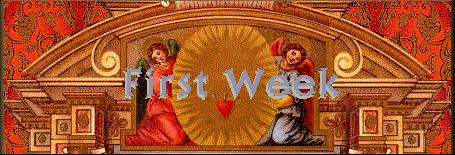
The Examen of Conscience

The Examen of Conscience
I examine my conscience by looking first of all at what I have done and what I am doing. For just as love is acted out and not merely talked about, so too are virtue and sin.
In general, I examine my conscience by simply looking back over my day to see what I have done and failed to do. Did I act as I have wanted to act? Am I developing ways of acting that I really approve of, or perhaps falling into ways of acting that my own conscience rejects?
Sometimes, I might concentrate on one particular thing I am doing or failing to do. For instance: I want to develop the habit of checking my calendar before accepting any invitation, and I know it will take me a certain time to develop that habit. Or perhaps I have become aware that I am using the name of Jesus Christ as an expletive, and I intend to stop that. In such cases, many find the Examen of Conscience useful as a means.
The Examen of Conscience helps me to check how I have acted during the day?not what its significance is, or how I felt about it, but what I have done or failed to do.
Here is a proven way to go about it:
First, I thank God our Lord for all He does in and for me and all humankind.
Second, I ask God to enlighten my mind to see my sins, and to help me live without them.
Third, I ask myself what I have done. What have I said, or left unsaid? What have I done, or left undone? I examine my day, perhaps with a little system?by time periods, or places, or some such method.
Fourth, I will identify anything that I do not approve of according to my own conscience, and turn to God asking forgiveness.
Fifth, I will look forward and decide how I will act tomorrow, provided God gives me that gift. And I end with the Our Father.
This exercise can be well done in just a few minutes, perhaps sometimes only one or two.
It is genuinely important that those who intend
to mature in Christ spend some time at the end of each day thanking God
for the day and examining how they are acting out their hopes and intentions.